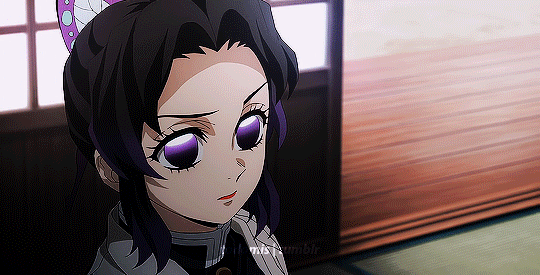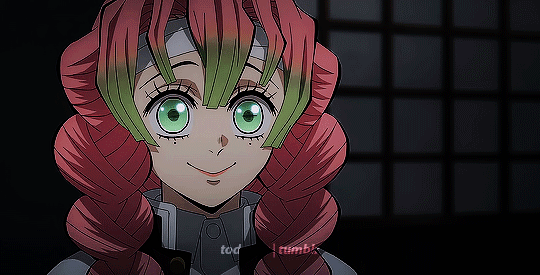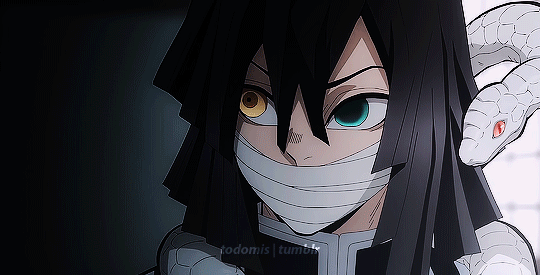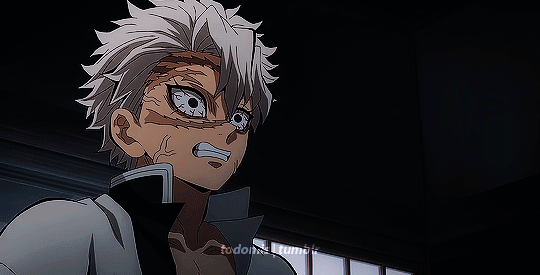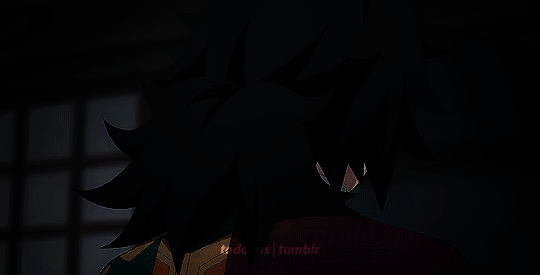Leisure account, 21 yrs oldOriginal Works: karczelshowcaseFan works: karczel-fanzone
Don't wanna be here? Send us removal request.
Text
I just love that ufotable confirmed to us who's bbg and who's not by putting a bow on them 🥹

(Don't take this seriously, you guys)
220 notes
·
View notes
Text
Lunarians vs Lustrous - A look into Individualism and Collectivism in Houseki no Kuni
As I've mentioned before in my posts, these two races have a lot of parallels in regards to real life cultures and philosophies, and I'd like to examine what characterizes each of them more closely and how their portrayal and subsequent differences reflect the themes and messages of the manga.
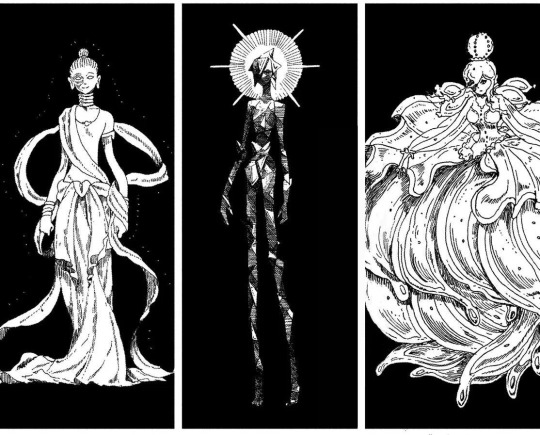
The West and the East
There's many factors that cemented the difference between the individualistic collectivist cultures, but in essence, what separates them is what each of them valued according to their cultural and religious beliefs. Beyond looking at what caused that each side of the world turned to a different way of living (which in and of itself is massively simplifying it, because not the entire west is individualistic and viceversa, it's a lot more gray than that), it's important to understand what each philosophy entails.
It has to be said that this separation, through globalism and its subsequent capitalism, became blurrier and much more skewed towards the western way of doing things, in which eastern spirituality is just another commodity, but I'll talk more about it later.
By the way, my little analysis of the incredibly underdeveloped Admirabilis is that they basically aim to represent a culture under monarchy (because of their designs), but I don't think there's a lot more to extrapolate from that other than the fact that they represent the missing piece of how humanity can organize itself and its beliefs, I guess.
The Lustrous
I normally call them gems, but I guess their official name is the Lustrous, right? Well, whatever, maybe I'll use it interchangeably as I write.

The Lustrous are clearly a collectivist society, which are associated with Eastern cultures. Characterized by favoring community, which many times means the suppression and neglect of those who don't fit in it or those who aren't in it, it's clear that characters like Phos and Cinnabar are meant to be the misfits in a society like the one Kongo promoted. The arrangement at the start of the manga, in which everyone knows Cinnabar is suffering but no one does anything about it because it's more convienent that way is a perfect example of this.
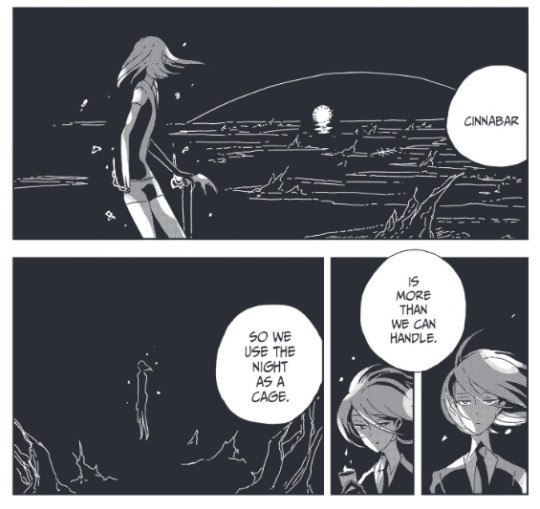
Even those who fit in and take pride in their usefulness (the value that reigns supreme in the gems' society) have to compete in that regard, as a collectivist society which values a specific trait will have a "supposed way of being" that isn't as tolerant of differences and different ways of expressing yourself and achieving success as an individualistic society would.
Just take a look at Dia and Bortz, the former who despite being at the top of the "usefulness hierarchy" still feels like she isn't enough because she has Bortz as a partner, or the latter who feels like she constantly has to live up to her reputation of being the strongest and actually feels relieved when others step up to cover for her. (Like when the Lunarians stop attacking.) Everyone is bottling things up and no one is doing anything about it because it's easier that way... except it obviously isn't.
Hell, even though I do agree that Phos' loneliness is self inflicted for the most part, it can't be ignored that the reason the gems alienated them so easily and quickly was also partly due to this collectivist mentality, in which the gems are "us" and everything else is "them*.

Phos further strayed from the "us" with each transformation, to the point that she is rejected understanding because of her differences with the rest, despite her seemingly good intentions. This black and white way of viewing people and beings in general results is dangerous, and can justify inhumane acts such as what Phos was made to bear during her prayer. And of course, the "architect" of this society is Kongo/Adamant, though I do understand the reasoning behind it.
The Mastermind

I'd say that Kongo overcorrected, and created a society that separated itself from the selfishness of humanity along with the earthly pleasures that he saw dominated the humans, to the point of the gems' worth becoming completely about how useful they were in their work and neglecting their emotions and the fun they could have in between along with ignoring the importance of their individual relationships (as opposed to just their cordial relationship to each other, out of being part of the same species).
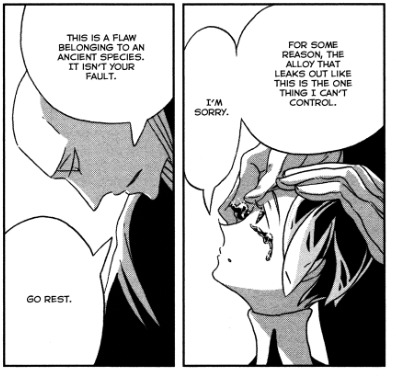
Kong actively discouraged feeling, discouraged crying for Phos—he discouraged humanity, with the good and the bad.
This has both pros and cons, because even though it keeps the gems together and allows them to effectively counter the threat that the lunarians pose, it also eaves them in a stagnant society, one in which they have to bear the risk of losing the people they care about while still being expected to keep their composure for the sake of each other and tradition.
It's a society that is afraid of change, because change is a stand out, and no one should stand out in a collectivist society—and yet, it's that same unchanging quality and resilience for the sake of each other that strengthens the bonds of the gems after Kongo reveals the truth to them. Their loyalty to Kongo and each other gives them meaning, and allows them to keep going year after year.

Whatever the case, that status quo is broken the moment Moon Phos enters the picture. And I'd say the main difference between her and the rest of the gems is her selfishness, the selfishness to see how far she can push herself and to discover what's out there. This is where we start to enter into individualism, with all the progress and independence usually attached to it, that many gems secretly admired, to the point of calling her their "hope".
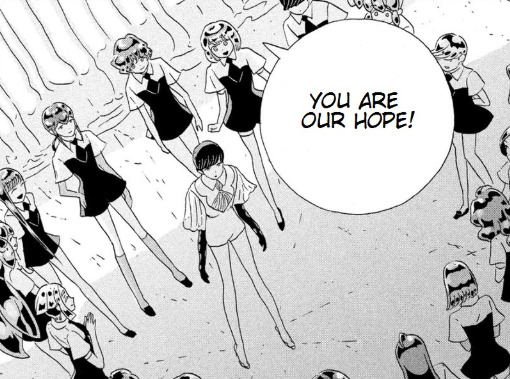
The reason we call the Phos with Lapis' head "Moon Phos" is because once she arrived to the moon, she assimilates with the Lunarians in a way—she's extremely compatible with their way of being and the optimization and research they constantly promote, but she also has the disadvantages that come with being like that, in how that obsession for optimization and rational planning keeps her mind away from those who are supposedly important to her, just being tools in her game and ultimately causing her downfall as she's broken by those whose trust she broke with too many mindgames and rationality. But in order to analyze this more in depth, let's take a look at individualism in general.
The Lunarians
Personally, I see individualism as a cult of of rationality and its subsequent optimization, in which the only logical conclusion of valuing independence and progress over everything is the commodification of any and all experiences and resources in order to sell them and increase your own gains. Everything is a tool, a means to an end, feeble feelings like love and community aren't as important as the american dream and the self made man. Individualism, and the economic version of it, capitalism, are systems that perpetuate the ideas they represent and instill them onto the mind of those born under them.
We can clearly see how Ichikawa meant for the Lunarians' extravagant lifestyle to be a complete contrast to the simpleness and community-focused society of the Lustrous.

They are literally a society expecting and wishing for their demise, too caught up in it to value what it is and keeping their minds busy with sensorial pleasures and progress—"what will be". They are much more technologically advanced than the gems due to this, which is good, of course, but it also comes with a cost.
And that's the magic of comparing these two cultures—each of them is incredibly flawed, and yet changing them also comes with losing something of value in the process. It shows the contrasting nature of certain philosophies and ideas and how the overreliance on them leads to black and white thinking and unhappiness, whether it is from suppressing yourself too much like the gems or not allowing yourself to compromise and live at all like the Lunarians.
Maybe, just maybe, instead of grand philosophies that apply to everyone and anyone, idealizing their principles and taking them as a gospel to live, it's better to just be, like Phos learns to do in the last arc.

Assimilation and Conquest
Remember what I said about how globalism blurried the line? I'd say the assimilation of the gems to Lunarian society, becoming Lunarians themselves, reflects this perfectly.

Now, they're allowed to be who they are, seek their own interests, indulge into the endless pleasures that were prepared for them and discover a whole new world in which love, food and entertainment are part of their day to day life. However, as great as it sounds, much is also lost through the assimilation—the gems' glitter is gone, and their care for each other isn't really touched upon.
The gems, upon first arriving on the moon, are made to wear new clothes, fancy and more feminine, they are shown the pleasures they can indulge in, and the possibility of keeping the culture and mantaining the positive aspects of their bond is neglected, almost ran over, in what is in essence a colonization.

Cairngorm is a clear example of this, and although she becomes happier by allowing herself to show her true colors (literally) and falling in love with Aechmea, there is this constant feeling that she strayed away from who she should have been, from her relationship with Phos, from her own wishes and interests… because she never discovered them.
She always lived for the sake of others, for Phos, for Lapis, for Ghost, and even if it is under the mask of a loving relationship, she repeats this pattern with Aechmea. Their relationship is all that is great and wrong with Lunarian culture, in which you are drunk with pleasure and forget your true self as a result. Why else do you think Cairngorm is continually portrayed as hyperfeminine and small, almost child-like, compared to the manipulative, dominating and masculine Aechma?
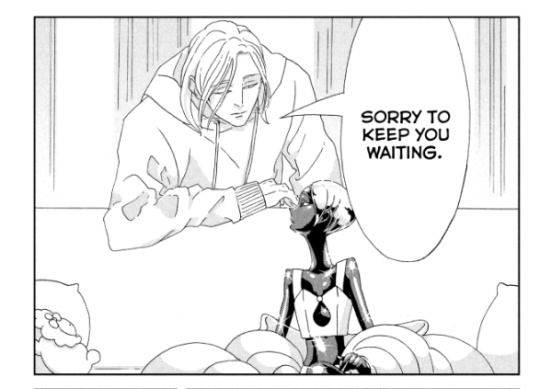
These labels are the ones that individualism and capitalism pushes in order to survive and keep the power dynamics that characterize it. They are images and illusions of what "should be", of masculinity and femininity that the characters fool themselves into wanting in order to continue with the "blinding-youself-with-pleasure" charade.
There's a foreboding sense that Cairngorm—no, that the Lustrous, have lost their purpose and are trying to distract themselves from their inevitable demise through the eartly pleasures that the Lunarian society offers. There's a reason why the album of photos starring the gems living on the moon is called "Party of the End"—because that's what the life of the Lustrous on the moon is.
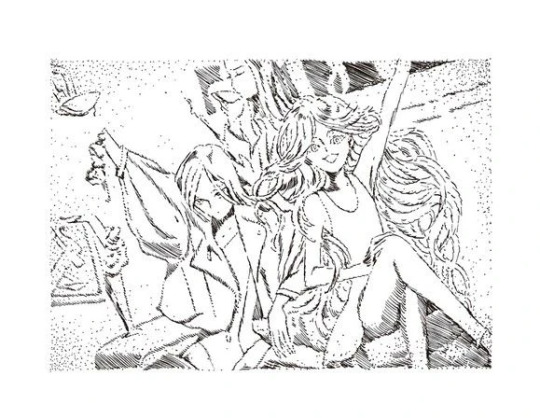
A party, which involves overindulgence on sensorial pleasures, that is done in order to create an instance away facing their own mortality and having to reflect upon their actions. A celebration that precedes the end, in which they become nothingness and yet they also become something else without ever having come to terms with who they were, like Phos does.
We are all the Same
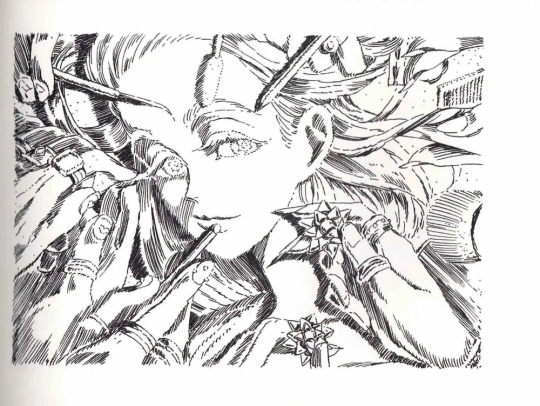
With all of that in mind, I believe that rather than choosing to ally with a certain philosophy, religion, or culture, Houseki no Kuni shows unabashedly the ugliness that each possibility holds, the selfishness and selflessness of humans, and how those traits manifest differently depending on the ideas and principles that surround you. It's a story that blurries the lines between a selfish collectivism and a selfless individualism, between the organic and inorganic, between what is us and what is something else (Phos), and it arrives at the conclusion that it's all ultimately meaningless in the face of a simple happiness—that binarisms are misleading and in truth, even cultures as different as the Lustrous and the Lunarians have as much in common as they have differences, especially in their selfishness. It's an examination of humanity and the way it deals with each other and itself.
66 notes
·
View notes
Text
Moon Phos' hyperrationality and self-sabotage, and why it's a paradoxical step into happiness.
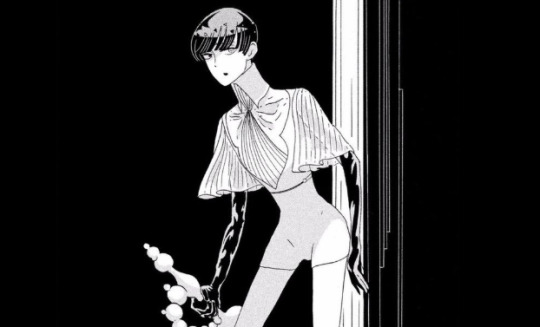
Or, basically, a Moon Phos analysis.
I think this part of the manga is genius, both thematically and for Phos' original character, because it goes against everything she used to represent, and it showcases both the dangers and strengths of reason, and how isolating it can be.
OG Phos vs Moon Phos
While OG Phos used to be a lot more present-focused and someone who took things at face value, that also made her capable of reaching out in a very honest and genuine way to people like Cinnabar, who was too caught up in her mind and insecurities to see an escape for her situation. Phos used to be someone who was able to enjoy the moment, and the simple things that come with it, whether it was the butterflies, the amazing views, or her own cute mint-colored hair.

I'd argue this way of experimenting life is what HnK argues to be the key to happiness: that existence is what you make of it, and Phos was content as she was, but everyone around her pushed her to become something else, to the point that she absorbed those frustrations and lost sight of her way of living.
What corrupts Phos isn't that she acquires new body parts; that's just an extreme metaphor for what changing would look like if our soul also experimented physical change—it's all about how she loses sight of the simple happiness she could have experimented on her own (and along with Cinnabar, if she reached out to her), in favor of increasingly more complicated goals. (Moon Phos is the extreme version of this.)
Phos' corruption into overthinking doesn't come out of nowhere, though and it starts to manifest strongly the moment she loses herself in the stress and burden of losing Antarc in Winter. Phos does retain some of her groundedness as post-Winter Phos, but she also starts to think more, to question more things and to brute-force her way into change, with disasterous results.

When she realizes this, she makes the right call by trying to stop, but it's too late by then—she had already stared at the abyss, and the world wouldn't let her forget all that she had learnt.
When Phos loses her head, now she has all the tools she needed to generate change and innovation—to look at the big picture and avoid getting caught up on the little things... and that's her demise.
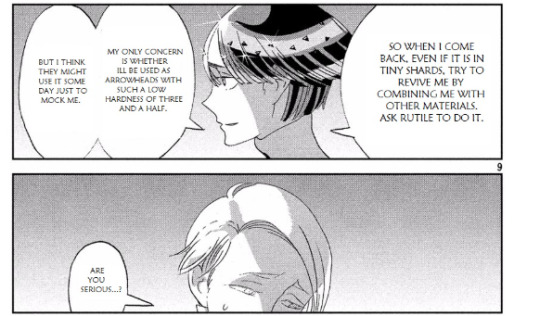
Because in comparison with OG Phos, who looks at the present, Moon Phos is someone who always looks forward. Someone who always uses reason as her greatest weapon, in order to manipulate others while losing sight of many important details (some related to her own well-being and that of others) in favor of big, complicated plans in which everyone's feelings, even her own, are just pawns in her game.
Cairngorm explicitly warns her about this, saying that she hasn't valued those at her side (Cairngorm herself, or Cinnabar) as much as she should, and that's why she's become such a lonely individual.

Moon Phos is someone who lives in her head, in the world of ideas and the abstract, while OG Phos was the complete opposite, and the change in approach has a direct impact on her happiness, as she loses sight of the simple things in favor of objectives that just don't translate into happiness as well as she thinks she does. Moon Phos optimizes, but loses the essence of happiness that she could have achieved in a simple manner by focusing too much on "what should be" rather than "what it is".
To put it succintly, Moon Phos is brute-forcing her way into being accepted, into bringing change for her people, losing all the tact that was needed for a moment as life-changing as a pact with the lunarians could be for the gems. And if OG Phos had something that Moon Phos didn't, was that ability to look at things in a simple way that would have avoided such a mess in the first place.
By talking about both of them, I think it's clear that each have their strength and weaknesses, and that's why talking about Phos is so difficult. Because even if she lost many of the good things that made her who she was, she also gained many others that brought "prosperity" for the gems. Prosperity in quotations because later, we'll see that the optimization didn't really bring many benefits.
Whatever the case, in order to truly understand the strengths and weaknesses of Moon Phos, we need to analyze her sacrificial role in the story according to the themes of buddhism in it.
The Bodhisattva
A sacrificial figure in Buddhism, and that Phos, especially Moon Phos, represents to a T.
But why? Well, one of the fundamental characteristics that the Bodhisattva represents is that they work towards enlightenment in order to save others, being a kind of Buddha in training. The problem here is that sometimes, saving others requires for the Bodhisattva to sacrifice their own happiness and enlightenment.
Phos becomes the opposite of the teachings of buddhism. Hyperrational, manipulative, working towards her own desires and masking them as altruism. (because we all know Phos didn't do everything she did for the gems, she did it for their validation and to be acknoledged by them). And yet, the contradictory part of it is that it was necessary for everyone's enlightenment, but most important of all, for Phos to be given the chance to be happy, away from a world that pushed her to be rational.
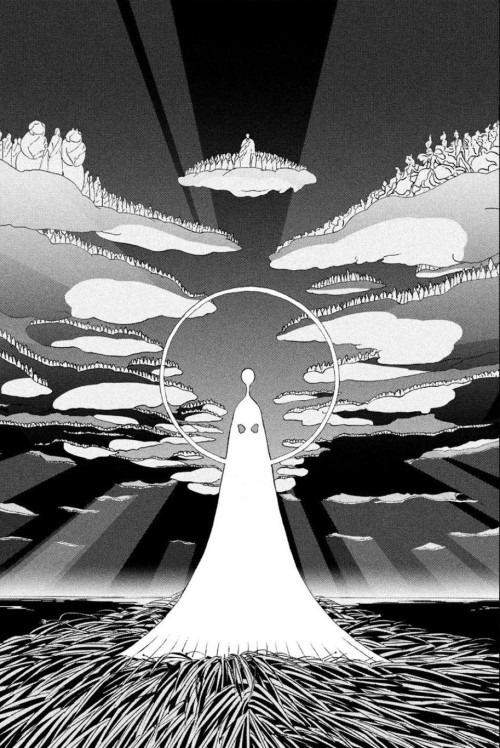
Buddhism has this constant theme of paradox in it. The paradox that in order to reach happiness, you must let go of happiness. The paradox that in order to realize that you must focus on the present and stop thinking, Buddha had to spend years thinking about it. And Phos is a living paradox, in the sense that her hyperrationality and look into the future and big picture was needed for everyone to reach happiness, at her own expense. She was played a fool by everyone, and it's even implied that Kongo was on it, all because she was the one most attached to her earthly desires of them all, to the point of changing every part of herself in order to accomodate to what she thought others wanted her to be.
In a way, Moon Phos (and the lunarians, because it's no coincidence that the "lunarian" Phos is the one that represents these themes) doubles as a criticism of our present capitalist society as a whole, with all its hyperrationality and big-picture focus that allowed for progress and suffering alike, always at the expense of oneself. Because we're our own slaves, and we work ourselves to death to reach a happiness that is further and further away from us due to those same efforts (paradoxically). All Phos wanted at first was to be loved by those around her, but she chased that dream with such relentlessness that she ended up casting away the parts of her that made her loveable and losing the people that would have been able to connect with her. And yet at the same time, Moon Phos (and the lunarians, the rationality, Ayumu herself) paved the way for God Phos' chance at happiness at the end of the story.
A Paradox
Thus, to the question of how to live in society and be happy, Houseki no Kuni poses that the answer is balance, or perhaps, a paradox. It showcases the ugly but necessary aspects of humanity, and the reality that every time you gain something, you lose something else, through Phos and her loss of body parts that benefitted society at her expense. Thus, there is no right extreme, and no goal that can be achieved by just rigidly doing the same thing.
Whether you look at the enlightenment buddhism promises you (as showcased by the way of living of the gems, simple but without meaning and creating resentment between everyone, with a literal buddhist monk as its leader), or the prosperity that civilization achieves (as showcased by the lunarians, who corrupt and surround themselves with earthly pleasures to distract themselves from their problems), both have their strong points and weaknesses and seem paradoxically necessary to reach one another, to ultimately work towards the goal of enjoying existence, as it is, unabashedly.
The gems truly found happiness on the moon due to finally allowing them to be themselves, and eventually, all the lunarians (including the gems, who turned into ones by virtue of corrupting themselves with the eartly pleasures), reached enlightenment by letting go of those desires. Of course, if you analyze it more, it was a "fake" kind of salvation, and only Phos reached true happiness in her God form (expanding more on it on another post), but at least they got to enjoy more of their life than they would have if they had continued in the endless cycle they were put in (or the "samsara").
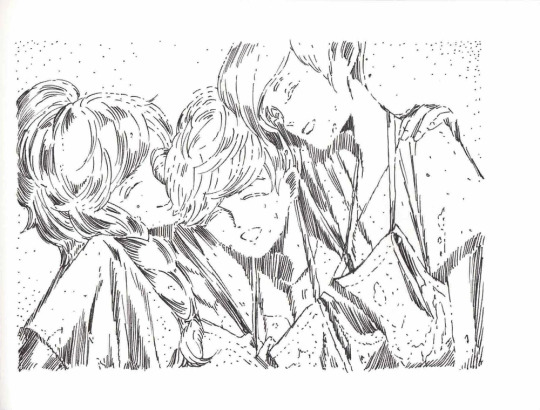
In the end, Phos had to gain the rationality that characterizes present-day humanity in order to save everyone, while at the same time, condemning herself. Because for all their short-sightedness, destruction and cruelty, humans are also kind and wise, and they allowed the rocks to live just that little bit more by escaping the sun in chapter 106. Both the optimization and the relaxation and appreciation of little things are necessary in order to become happy, and we need to find the balance in the different aspects of ourselves in order to do so.

As Phos herself says at the end of the manga, despite it all, she is grateful. Because no matter how she got there, every step of her journey was necessary to make her who she is—and that's how it is for everyone. Experiences mold us, they change us, we can't force change and we certainly can't predict where it'll take us... and that's the paradox. Because sometimes, working towards the result we desire leads us astray from it, and viceversa. Phos was someone who had her eyes set on a goal, one that she didn't want to admit: the goal to be admired and loved by everyone.
And in the end, she had no one.
Moon Phos was necessary, but she took it to an extreme and burnt herself up along the way. Thankfully, she was granted a second chance by the very same flawed people (Kongo, Aechmea, Ayumu) that made her into a sacrificial lamb for their own selfishness.
A chance she took to finally accept that no matter what she did, there was no predicting life or changing yourself to an "optimal" version of yourself, so she might as well enjoy the ride.
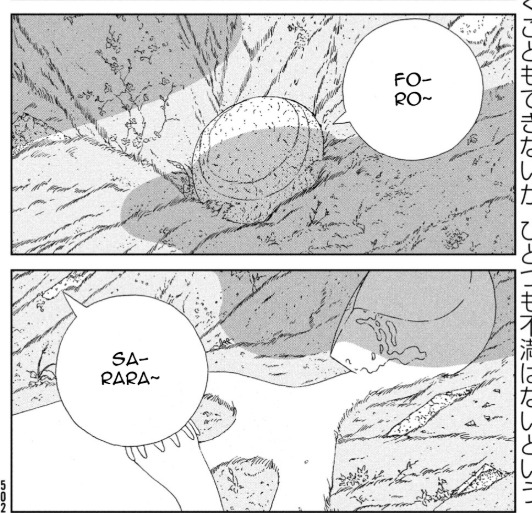
118 notes
·
View notes
Text

LICHERALLY never getting over this official art of Gyomei
I mean that soft, almost smug-confident smile???? His eyes look so relaxed and at ease and I just wanna bury my face against that neck and GRAHH he's so handsome 😩😩😩😩
39 notes
·
View notes
Text



kimetsu_csgame
本日発売の週刊少年ジャンプ17号にて 『鬼滅の刃 ヒノカミ血風譚2』最新情報が掲載! バーサスモードに伊黒小芭内&不死川実弥&悲鳴嶼行冥が参戦! #ヒノカミ血風譚2 #鬼滅の刃
9 notes
·
View notes
Text
I just love that ufotable confirmed to us who's bbg and who's not by putting a bow on them 🥹

(Don't take this seriously, you guys)
220 notes
·
View notes
Text

cat distribution system found gyomei。・°°・(>_<)・°°・。
524 notes
·
View notes
Text

My take on Gyomei Himejima, fabric studies slowly sinking in I think, I hope when I finish all of them I see a difference from the first one 🙏 Namu amida butsu 🙏
74 notes
·
View notes
Text
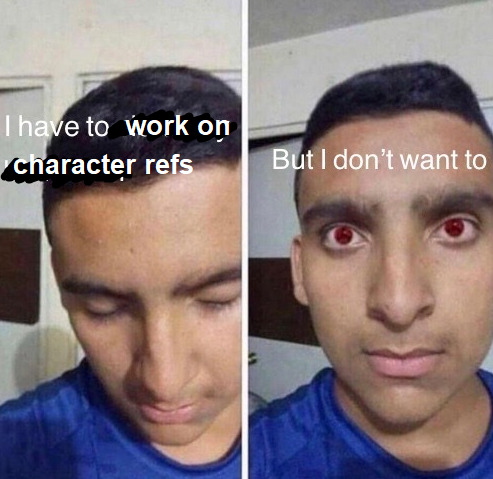
[taps watch] you've got 2 months, art fighters...
14K notes
·
View notes
Text



been practicing drawing different characters on my fave anime people so here’s some Hashiras •3•
170 notes
·
View notes
Text
So I just came back from my country and yeah its August 23rd here soooo HAPPY BDAY TO MY POOKIE BEAR GYOMEI HIMEJIMA
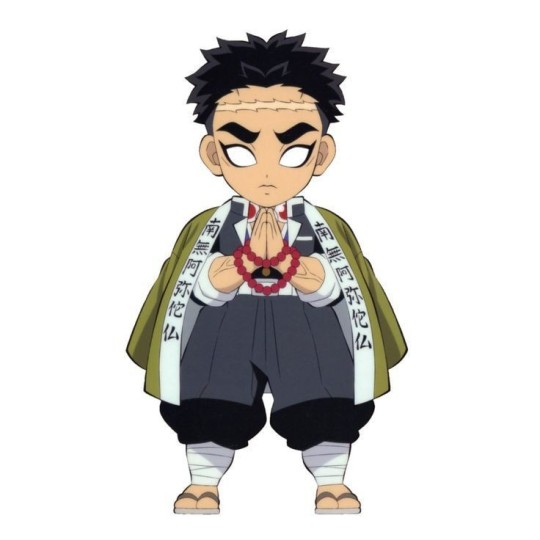

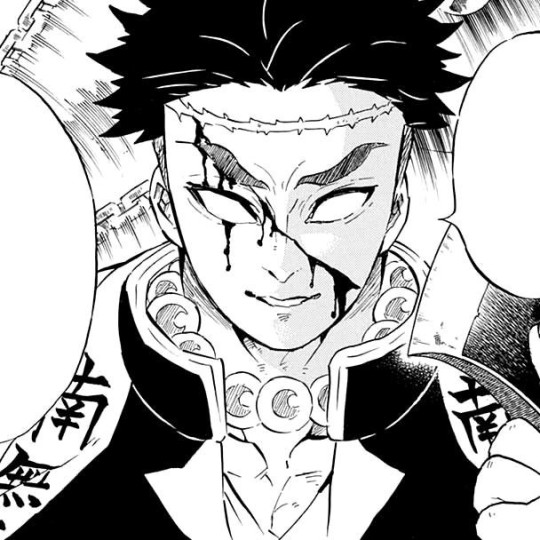



457 notes
·
View notes
Text
Gyomei had siblings??!
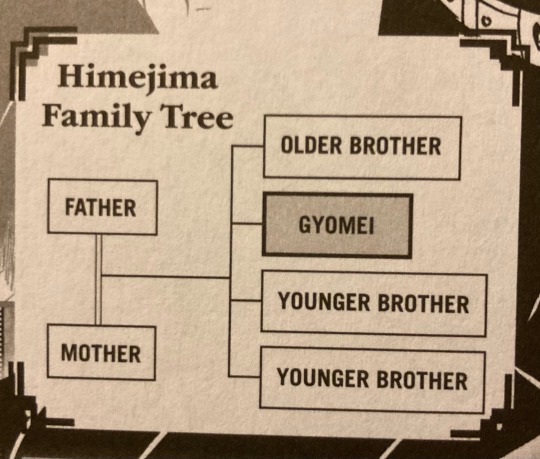
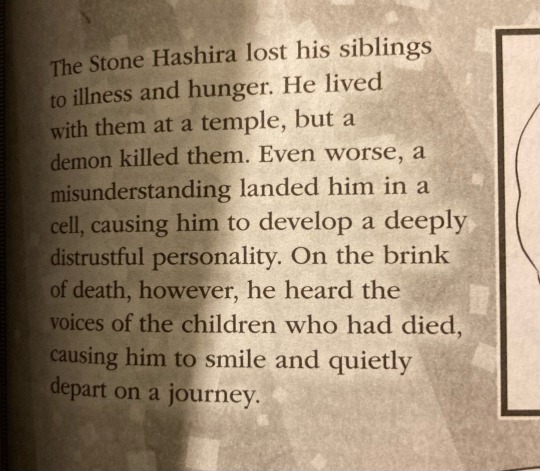
Oh my god this man has really lost everyone hasn’t he, and the fact nobody speaks about this? He is criminally underrated and forgotten about it HURTS. It states he lost them to illness and hunger and they lived in the temple with him, this gives us an insight into why Gyomei took over the responsibility of taking care of the orphans, they were all younger than him and he didn’t want them to starve or end up dying by illness like his brothers, which is why he always made sure the orphans had the most food ☹️
Gyomei literally lost everyone in his life, he isn’t only insanely strong physically but also mentally, he’s so mature, and hides his anguish and turmoil well, being able to cope in healthy manners and release it all in his tears as he cries often due to his empathy for the cruelty of the world, which he knows about since he’s been a victim of that cruelty his whole life.
Gyomei lost his mother after she gave birth to his youngest brother, then his father due to an illness. Gyomei then lost his brothers, leaving the orphans as his new found family, he lost them too, leaving him alone and with no family. Kagaya ends up freeing Gyomei and taking him in, they build a strong bond over the course of times, 8 years later, BOOM, Kagaya sacrifices himself, and he would’ve died anyways due to his curse/illness. At 20 years old Gyomei takes in Shinobu and Kanae and ends up sending them to trainers, he holds himself responsible for them, if they die, it’s his fault, he also becomes a little bit attached to them, thinking of them like how he thought of the orphans. Kanae dies, Gyomei most likely deemed it as his fault since he introduced her to a trainer, he also had to see Shinobu change drastically and seek vengeance, he also knew she would end up sacrificing herself for her cause, just like Ubuyashiki, he wanted to tell her he hoped she wouldn’t die, but knew he couldn’t stop her. Gyomei became acquainted with muichiro, fussing over him due to how young he was, being the fatherly figure he has been practically his whole life. Muichiro ends up dying, in front of Gyomei. Then there’s Genya, Gyomei takes in Genya as a ‘step-son’ since he can’t use breathing styles, Gyomei also built a bond with Genya, as he cared for him, giving him a home and company and support when he sought him alone and eating demons, he even makes sure to look over Genya since he worries about his anger issues. He witnesses Genya dying as well.
Nobody talks about how Gyomei lost every single person close to him, but still persisted, he was happy when he died because he could finally be with those he lost and could resume his life with the orphans, taking care of them, like he always has, it’s in his nature to take care of those in need, especially those who are young.
Gyomei, they don’t love you like I love you ☹️💓
575 notes
·
View notes





